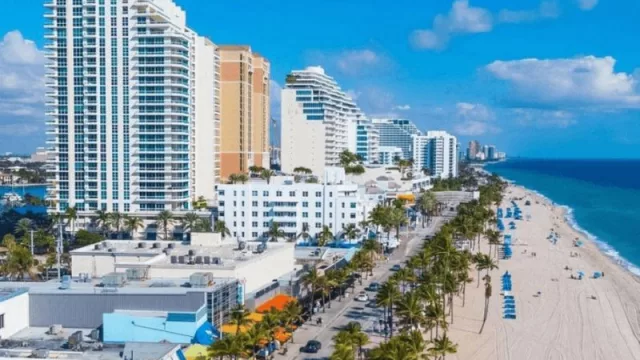This piece tackles a core, deep, entirely practical, and critical issue today. If we don’t address it at the root, much of what follows in culture, management, politics, productivity, media, technology, and the economy may lack foundation—and meaning.
Designing the future of work—with human intelligence.
(Co-created with the prestigious RED Beyond and Infonegocios Miami)
-
At the end of the 19th century, French sociologist Gustave Le Bon, in The Crowd: A Study of the Popular Mind, argued that Western society featured two major “artificial masses”: the Church and the Army. Both were defined by hierarchies, shared values, slogans and strict operating rules, and binding clauses governing relationships. In both cases, loyalty was paramount and family life faced explicit or implicit constraints—explicit celibacy in the Church and a virtual version in the Army.
-
He likely focused on those two forms because modern corporations didn’t exist yet. Today, we see large companies designed with traits borrowed from both: hierarchies, leadership models, shared vision—and constraints on personal and family life, whether through extreme availability demands or frequent business travel.
These organizations undoubtedly create a strong sense of belonging and containment, a system of certainties that provides security and identity. People know who they are, what the rules are, whom they answer to, and where they aspire to go.
-
Then, one day, the dream of freedom—or the illusion of a new destiny—shows up. Sometimes it’s triggered by lack of recognition, a loss of meaning in the work, or exhaustion from stress. The constant urgency, maddening behaviors, unrelenting pressure, and a lack of creative exercise are other causes.
-
Some notice that not only their work quality is slipping, but also their family and social life—and their physical and mental health. So they look for a role in another corporation. Without losing the benefits of belonging, the idea is to find a culture that’s less stressful, more open, with more room to grow and improve quality of life.
-
For others, the idea of leaving the structure arises—sometimes it happens, other times it lingers as a promise to be fulfilled when “conditions are right”: when the kids finish school, when I have my house, when I turn fifty…
-
Aspirations that may materialize—or remain fantasies to endure reality or escape it, while ruminating on dissatisfaction.
It’s not easy to imagine a less-scripted life in which you must revisit your goals and interests every day and write your own rules. Many are used to that familiar world—with its routines, rituals, idioms, dress codes, permissions, prohibitions, and transgressions.
-
Under charismatic leaders, they feel proud to belong to a brotherhood with a proper name. They add the brand to their surname as if it were a married last name: “I’m Juan X from Z.”
-
How could we not understand the pain—and guilt—of separating? Loyal and tightly knit, they struggle to give up that deep identity and land in more uncertain settings.
-
Others will become entrepreneurs. In today’s environment, the incentives are tempting. Creativity, autonomy, and freedom have become more attractive than security and stability. Many—after years of feeling protected yet constrained by a role, a place, a responsibility—decide to try their own venture.
-
But for the entrepreneur a new mystery opens—fascinating and sometimes terrifying. The anxious search for ideas, opportunities, interlocutors, partners, investors. And always the hope of that “saving project” that will make them successful in a flash of luck and recognition.
They’ll have to handle vertigo: complexity, uncertainty, and the speed of change—without the protection of a consolidated structure. In return, they must bring passion and self-discipline to build something from scratch, and figure out where to nest it and with whom to share it.
Every day we read new stories of disruptive creatives urging us to jump. Younger professionals prioritize quality of life and a less linear, more diverse personal path. But in the entrepreneurial dream, more people wake up exposed to the elements than those who build more than a house of cards.
-
Leaving the comfort zone is not a risk-free challenge. You may need to prepare so it’s not a leap into the void. Many founders say that in year one they work nights and weekends, sustaining both worlds in parallel until they’re ready to cast off and go all in.
-
At the same time, hybrid models are emerging: under the umbrella of a large company, people work by project—entrepreneur-style. In this convergence, some organizations are valuing flexibility, recognizing nontraditional skills, and adapting to what their people need.
-
And communications technology enables many tasks to be done far from formal structures. In that case, teams meet across networks to build learning and co-creation communities that link autonomy with a willingness to collaborate.
-
Across life domains, humans wrestle between a hunger for freedom and a need for commitment. It’s a delicate balance—feeling free while preserving stability.
Perhaps networked work offers that possibility: a zone of well-being where we feel accompanied without losing our independence. Increasingly, this can happen both inside agile, flexible companies and within the entrepreneurial dream.
Prof. Dr. Sonia Abadi
I’m a physician, psychoanalyst, and university professor. I’ve always researched creativity, innovation, and human relationships. I lecture widely, nationally and internationally, and have authored numerous articles and several books published in different countries. I developed the Thinking-in-Networks model, integrating psychology, neuroscience, and the science of living networks. I’m a Vistage speaker and a member of multiple communities of women leaders. I spoke at TED Rosario and Tenaris conferences. I advise leaders and management structures across companies and NGOs—on innovation, leadership, crisis management, and the mental health of people and teams.
-
I received the Argentine Senate’s “Gobernador Cresto” award as a Leader for Latin American Development.
-
I also serve as Executive Director of Espacio Aguaribay, Art, Science, and Culture.
-
[email protected] | @soniaabadienred | www.soniaabadi.com.ar
-
Juncal 4631, 15º D, CABA. Buenos Aires, Argentina | (+54) 11 5016-7381
Read Smart, Be Smarter!
Infonegocios NETWORK: 4.5 million Anglo-Latinos united by a passion for business.
Join us and stay informed:
Subscribe for free
Contact Infonegocios MIAMI:
-
marcelo.maurizio@gmail.com












Tu opinión enriquece este artículo: